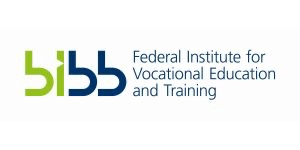Most countries in the Asia-Pacific have developed or are in the process of developing national qualifications frameworks (NQFs) to integrate new qualifications and competencies in TVET and to facilitate skills recognition and labour mobility.
A 2017 global inventory of qualifications frameworks found that most Asia-Pacific countries had already developed or were planning to develop an NQF. Some sub-regions or country groups have also developed mechanisms for translating and comparing workers’ skills and qualifications across national borders – for example, the ASEAN Qualifications Reference Framework (AQRF). (Cedefop, ETF, UNESCO and UIL 2017)
In addition, some countries in the region have established systems to recognize and certify skills and experience gained in informal and/or non-formal settings to develop pathways to further education and employment for individuals operating outside the formal sector. (UNESCO 2016)
Transparent, well-articulated and outcome-based national or regional qualifications frameworks (NQF or RQF) are an important tool for promoting an integrated approach to skills development in the context of lifelong learning. They are also important in the context of closer regional integration, to enable skills recognition and facilitate labour mobility. (UNESCO 2016)
Employers’ organizations taking part in a 2015 UNESCO Asia-Pacific TVET Progress Review indicated that the introduction of an NQF in their country has had a positive impact on employers’ regard for TVET graduates’ skills and raised employers’ propensities to hire TVET graduates. Labour mobility has also increased, since TVET qualifications are now recognized by employers in neighbouring countries. (UNESCO 2016)
“National qualification frameworks underpinned by quality assurance should be developed and considered as crucial for enhancing transparency, comparability and recognition of qualifications within and across countries.”
(Kuala Lumpur Declaration, 2015 Asia-Pacific Conference on Education and Training)

UNESCO-UNEVOC/Amoda Nilnuwan
Capacity constraints, entrenched perceptions and implementation challenges have limited the positive impacts of NQFs and RPL processes in the region

CC BY-NC-SA 4.0 IGO © UNESCO-UNEVOC/Sarinah Ziziumiza
The AQRF has created opportunities to improve education and labour market mobility; and provides a mechanism for private sector involvement in TVET systems. The framework has spurred other initiatives including ASEAN agreements on labour market mobility and mutual recognition arrangements. But challenges also remain. One of the most significant is engaging sufficient private sector involvement in the further development of the AQRF.

AdobeStock_373813500
South-South and triangular cooperation could be the key to strengthening and harmonising qualifications frameworks and mutual recognition arrangements while promoting inclusive growth in the region
“In a fast-changing, global economy and labour market, skills and qualifications are key to ensure inclusive economic growth and fair and inclusive societies.”
– Mr Borhene Chakroun, Director, Division for Policies and Lifelong Learning Systems, UNESCO Education Sector
(UNESCO 2018)
The BILT project is implemented by

with support of

and sponsored by

UNESCO-UNEVOC International Centre
for Technical and Vocational Education and Training
UN Campus, Platz der Vereinten Nationen 1
53113 Bonn, Germany
Contact
Data privacy statement | Contacts | © UNESCO-UNEVOC